
Musicians are notorious for it, but finally it happened to me too. Writer's block!
It started just before Christmas, but it was not quite what I expected. I expected to be starved of ideas ... wracking my brains for some sort of starting point - tortured by a blank sheet of paper and a pen that refused to surrender ink (a somewhat outdated metaphor, I know). But this is not what happened. I have smartphone full of notes and voice memos brimming with ideas to prove that the creative juices never dried up. It was the next step that got me. The step where you take those ideas and flesh them out into something with structure and form. Something that sounds coherently like a song - a demo. I just got out of the habit. I blame Logic Pro - I switched from creative mode to technical mode. The back end of last year saw me completing my second album, Rising Tide Blues. Every last detail fine-tweaked, like a painter agonising over the final brushstroke, not quite sure if the picture is complete. By the time the album was done I was so sick of the minutiae I just published and mentally checked out. Of course, other things immediately swept in to take the place of music in my daily routine - family, travel, other business interests, tax returns ... all queuing at the door and vying for my attention. This became the new normal and the writing got left behind. The circuit breaker came a couple of weeks ago in the form of an out-of-the-blue call from the car company Jeep, inviting me to attend the 50th anniversary of the Montreux Jazz Festival. The brief was simple - come * enjoy * tweet! (something about my40,000+ twitter followers must have caught their attention). It seemed like a win-win to me. I was there with bells on. Given the short notice, I didn’t have much time to form an expectation of the trip, but even so it far exceeded those that I might have had, and there was one particular highlight that surpassed all others. This is not to detract from the rest of the trip. For a start Jeep’s hospitality was exceptional. As a major sponsor of the Montreux Jazz Festival every Jeep representative that I met seemed to be entirely on board with ideas that music and musicians are to be respected and valued. They were as excited to be there as I was. I saw some amazing musicians. Herbie Hancock in concert was a personal standout and the Jazz Guitar Competition was an absolute treat. And, by the way, being invited to test drive a couple of the latest Jeep models through the Swiss alps wasn’t exactly a hardship either. (Jeremy Clarkson eat your heart out!) But for me the real highlight was a private tour of the festival founder, Claude Nobs’, chalet high in the hills above Monteux. Turns out, being the guest of a major festival sponsor gives you access that others just don’t get, and made this a truly unique experience. Confession time. I knew very little about Claude Nobs coming into the trip, so crossing the threshold of his house I had no preconceptions about what laid ahead. I didn't really understand that I was entering a hallowed space. ‘Funky Claude’, was, by happy co-incidence, not only friend & host to most of the 20th century's jazz & rock ‘n’ roll royalty, but was also an inveterate collector of music memorabilia. In exchange for his hospitality he was often gifted keepsakes or personal artefacts. So picture this. Take a quaint, chocolate-box farmers chalet in the swiss alps and fill it to the rafters with some of the most important objects of contemporary music history. Don’t hide them in display boxes or group them rigidly by period or genre - just put them where there is space or where they look best, interspersed with furniture and family photos. Instruments are ready to play - the dogs and guests are free to move around objects freely. This is a home, but not like any other. It doesn’t stop there. Claude was also an obsessional collector of music video filmed over 50 years of the Montreux Jazz Festival. The media alone represent a priceless timeline of all the various technologies for audio-visual capture developed through the second half of the 20th century. But the real gold is the content, from Miles Davis to Aretha Franklin, Rolling Stones to James Brown, Nina Simone to David Bowie - all captured on film as well as sound. All these media are housed in a special room that Claude called the “bunker”. Thankfully, over 90% has now been converted to digital (should be 100% within a year) and the archive is considered a national and world treasure (UNESCO Memory of the World). So as I move through Claude’s house taking in the vibe I really start to sense the significance of the music history held within these walls. So many of these great artists have passed on now - even Claude himself, who died in 2013 after a skiing accident. For me there were two particularly personal moments. Firstly, I come across Freddie Mercury's chestnut brown grand piano, squeezed into a room full of other objects - a Queen picture-book on top, open at a photo of the legend himself. Then I chance upon a ‘Lucille’ custom, cherry-red, Gibson ES-335 guitar, gifted by the great, and sadly late, BB King. There are many guitars and pianos in the world - they all do essentially the same thing, but these objects, with their physical association to two of my greatest musical heroes… it gives me a frisson to be in their presence. All the more poignant knowing that they will never again emanate music in the hands of their owners. As for Claude, himself? His spirit is everywhere as you might expect. From his (astoundingly large) model train collection, to his two Bernese mountain dogs that still wait for him in the lift as if expecting him to take them for a walk - even three years on. It was hard not to be moved. Sacred spaces come in many shapes and sizes but for me this has become one. I don’t suppose I’ll ever have a chance to go back - it is still a private house. This was a once in a lifetime experience that I didn’t know I was having at the time. I went back to my hotel room and started to build out one of my song ideas on my guitar. Later, Jeep gave me the opportunity to sing a short set in their hospitality lounge, looking out over Lake Geneva with the mountains in the background. It was dusk and the neon Jazz Festival lights were just coming on. I did my best to be in the moment. Teddy Garcia P.S. Check out my Instagram for all my photos at the Montreux Jazz Festival
1 Comment
I am guilty of two crimes.
My first is smugness - misplaced as it turns out. My second is hypocrisy - albeit inadvertent. This blog is my confession. Watching Morgan Spurlock's documentary The Greatest Movie Ever Sold recently I was amused and enlightened by his clever send-up of product placement in the film industry. It got me thinking. Perhaps the music industry, in a desperate attempt to replace plummeting sales revenue, will increasingly go the way of Back to the Future and pretty much every James Bond movie ever made. A trusty Google search revealed many an egregious example in no time at all. One, in particular, caught my attention. Busta Rhymes' not-so-subtle endorsement of a certain well known brand of french liquor, ‘Pass the Courvoisier’ brought forth an extra-large snort from my already up-turned nose. Particularly at his claim that any reference to the pricey plonk was an ‘artistic choice’ and nothing more. I can just about accept that well-known products or brands might make their way into popular lyrics, if they support the narrative. Surely though, there is a line which, once crossed, inevitably turns a single into a jingle. I did not think much more on the subject until my wife fired up my album, Lost & Found in the car recently. There it was... Track 9: Line 9 of Bluesville-By-The-Sea “...maybe we should share a J&B or three”. The horror! My duplicity exposed in a moment of cold-sweat realisation. Not only am I endorsing a famous brand of blended whisky - I am also encouraging irresponsible drinking. In my defence, I will say this - it supports the narrative. So, my bad. I should have given Busta the benefit of the doubt when he made his defence of his artistic integrity. Now excuse me, but I have to make a call to a certain whisky manufacturer about a potential sponsorship deal... Teddy Garcia When writing a song there often comes a point where I find myself thinking, “Hang on, haven't I heard this riff before somewhere?”
For any songwriter with a conscience (and some integrity) this is a tense moment. No-one wants to be derivative, and yet it seems that there is something inevitable, even desirable, about creating music that is familiar. Let’s explore further. Fact: musicians get away with imitation more than other artists. Painters who copy are derided for their mimicry, or even accused of forgery. Writers who plagiarize are pilloried and shunned for bringing the profession into disrepute. The music world has not been without controversies. Sam Smith has been asked to please explain given that his smash hit ‘Stay with Me’ bears such an uncanny resemblance to the 1980’s Tom Petty & the Heartbreakers hit ‘Won't Back Down’. And yet, with an amicable agreement (and some naming credits), Sam and his quaint little song are back on track for a Grammy. Lance Armstrong must find it all a bit galling. Controversy has touched even the most venerated giants of the music world. Bob Dylan is alleged to have built his fame on the theft of uncredited lyrics from earlier artists, and the mighty Led Zeppelin have been called upon to explain the similarity of ‘Stairway to Heaven’ to a tune sung by a band that they toured with in the 1960’s. There seems little doubt that these accusations have some grounds. Yet, apart from a little bit of legal argy-bargy, and a slight roughing up in the press, the accused seem to somehow escape with their artistic reputations intact. No-one is burning their copy of 'Stairway to Heaven' in the streets quite yet. So why should songwriters be treated with any more leniency than painters or novelists? Music is different, somehow. Perhaps it is just simple math. Given the limitations of a 12-notes chromatic scale and a handful of accepted rhythms there is a limit to the number of possible combinations available. Lyrics offer more scope for variety, but even there songwriters and their listeners seek safe harbour in such words as love, heart, girl, boy, baby, night and day, over and over again. It seems therefore that, when it comes to music, it is familiarity and not novelty that we crave. Think about the concept of a chorus, which, by it’s very nature, is all about repetition. Ask anyone what kind of music they like and they will readily identify themselves as a fan of one genre or another, thereby implicitly asking for something familiar - not strange. As for musicians, unlike the lone writer or painter, they are very much herd animals. Musicians love to collaborate and share - to play together and exchange ideas. Early blues artists shamelessly borrowed each others lyrics and riffs without any self-consciousness or fear of reproach, and to an extent pop musicians do the same today (it’s generally royalty lawyers that take umbrage). Having said that, I still find myself cringing when I realise my own emerging song reminds me uncannily of something that I have heard in the past - sometimes the most obscure tunes, even ones I don't like. Once I realise the similarity, I will often go back and try to modify the riff to steer clear of the original - probably to the detriment of my song. The same goes for lyrics. If I get a cool hook line in my mind, I carefully avoid Google until the song is well and truly completed. Once it is locked down, I go and marvel at all the other song versions that have been built around that lyric - nothing is new under the sun after all. Luckily, at this stage of my musical career my songs get a few thousand listens at most so I won't be appearing on the radar screen of any big record company legal departments any time soon. At the point that I start getting cease and desist letters from a big-shot music lawyers I'll know that I've truly made it to the big time. Bring it on! Teddy Garcia “Where do your songs come from, Daddy?”... my son asks casually while we walk the dog. I thought I was ready for this awkward question, yet I still find myself waffling like a Belgian chef at a bake-off when I should have some profound response at the ready.
“From the depths of my subconscious mind, son. The true answer is, therefore, unknowable.” My imagined retort belies a deeper truth about the mystery of creativity. Ask any artist and they will offer a variation on the theme of a dissociative experience. A sense that one might just be channeling some other force seems to be universal. For some the experience is literal. The religiously inclined usually credit their deity. Bach was a great one for the “it wasn’t me...” defence. Julia Cameron, in her influential work The Artist's Way, talks euphemistically about the Great Creator (though we know who she’s really talking about). I favour a more psychological explanation, but that makes it no less mysterious to me. The experience of creating something, but not knowing quite where it came from, can be anything from uplifting to downright spooky. The subconscious can be hard to control. It's a law unto itself, doing what it wants, when it wants. Inspiration hides itself when you need it most, and springs from the closet, demanding attention, when you don’t. Different artists cope in different ways. Tom Waits talks about politely asking songs to "come back later" if they arrive while he is stuck in traffic. Some carry pen and paper - many a great song was first scribbled on the back of a napkin or beer coaster. My handwriting is so lousy I just hum or sing ideas into my phone, which can be awkward in public and challenging in the shower. Creativity can flow more freely during sleep when the frontal lobes let down their guard. Paul McCartney famously rolled out of bed and wrote Yesterday after it came to him in a dream. My own song, Like a Runaway Train came to me this way and it remains the song that I find hardest to recognise as mine. To conjure up creativity many artists have a predilection for… lets call them imagination-enhancing substances. Most of the music in the 60’s was fueled by dope and acid - the term Psychedelic Rock is not coincidental. By the 70’s and 80’s the drugs got harder and so did the music. This isn't just a modern phenomenon. Samuel Coleridge was busy writing Kubla Khan under the influence of opium when someone interrupted him, and Absinthe has been favoured, as a creative lubricant, by artists from Wilde to Hemingway. If the subconscious is the seat of creativity, how does it sit in relationship to the conscious mind? Jung referred to the subconscious as the "shadow" which, if not embodied in conscious life, becomes "darker and denser’". Our left-brain dominated society favours logic over creativity. Work can easily be converted to food and shelter. Art, not so much. My own career in business required me to park my artistic side for a couple of decades. When the opportunity arose, and I actively decided to shine a light into the shadow, it took a whole year for anything to emerge. My left brain resisted giving up ground to my right, and it took supreme effort to balance things out. So back to that question... “Where do songs come from?” You know, on reflection, I'm not sure that I really want to think it through too much. That would, after all, be giving in to my left brain. I would rather leave some mystery, for where there is mystery there can be magic. Radio interviewers, I am learning, will always ask a version of this question so I will have to work up something coherent. However, I'm hoping that my son soon develops an interest in sex so that we can move on to a less awkward line of questioning. Teddy Garcia I write songs.
I haven't been writing them for long (just over a year), so I haven't completed that many – about 30 to 40, depending on your definition of 'complete'. On top of that, I’ve come to it later in life. (Let's just say that my years of teenage angst are some way behind me.) But here's the thing: I'm loving it. Maybe it's an outlet for my hitherto stifled creative side. Or perhaps it's just nice to be back on the steep part of the learning curve. Either way, I find myself increasingly fascinated not just by the songs – the lyrics, the melodies – but also by the process of songwriting. Where, for instance, does inspiration come from? Why do some songs work, while others don't? How is it that some lyrics move you to tears, when others just grate on your nerves? I find I listen to music differently now, and perceive hitherto unnoticed (at least by me!) layers of depth and meaning. Even my faves are subjected to a heightened level of scrutiny, with some failing to make the cut (the emperor is naked, after all!), while others are appreciated more fully. So, what to do with these newfound insights? You probably know where this is going... I'm don't intend to write an instructional blog: I'll leave that to those that are more accomplished and experienced. After all, there are plenty of highly informative songwriting blogs out there. But I’d like to share my observations on the songwriting process: its joys and frustrations, and perhaps also its quirky and humorous side. I'll be documenting my own creative journey and looking at other artists’ work, picking out what I perceive to be the good, the bad, the inexplicable, the ethereal and the perhaps all too bloody obvious. It will be good to get it all off my chest (or out of my head at least) and I hope my observations will be interesting to others, perhaps giving some of my fellow aspiring songwriters the comfort of knowing that they’re not alone... So, whether you’re interested in songwriting, in the creative process generally or in the ups and downs of a wannabe songwriter, I hope you’ll have a read, and perhaps even subscribe to my blog and follow me on my musical journey. Teddy Garcia |
Teddy GarciaI write songs - then I write about writing songs. Archives
July 2016
Categories |
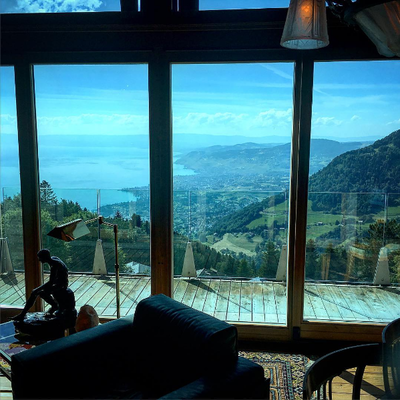
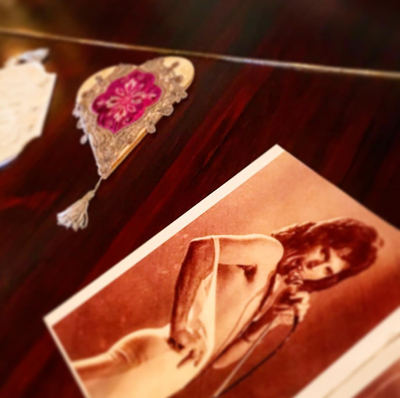

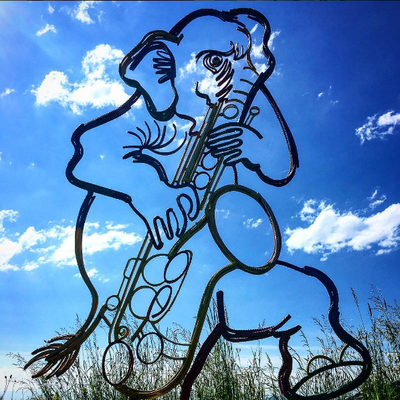
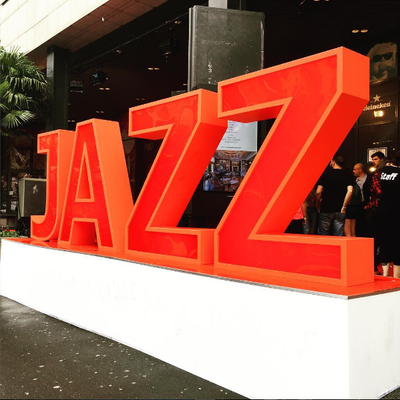
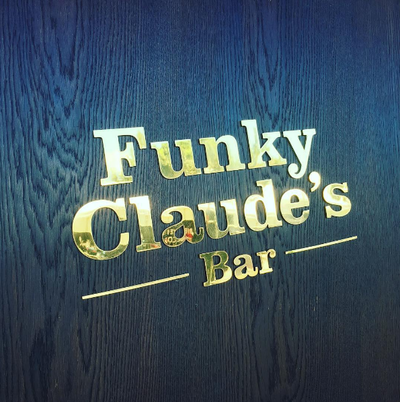


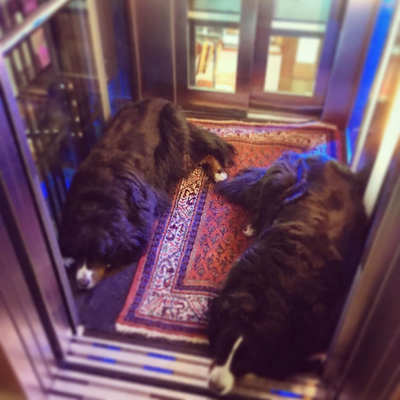
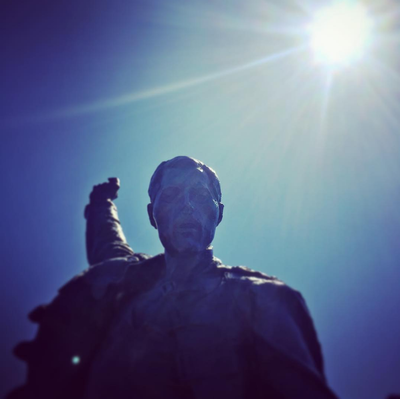
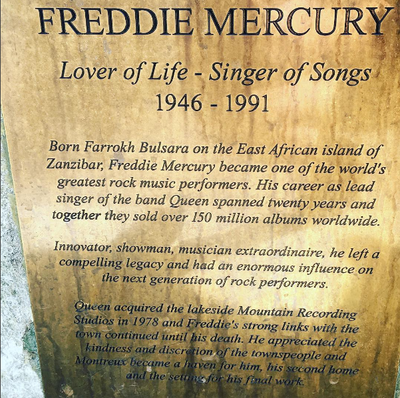
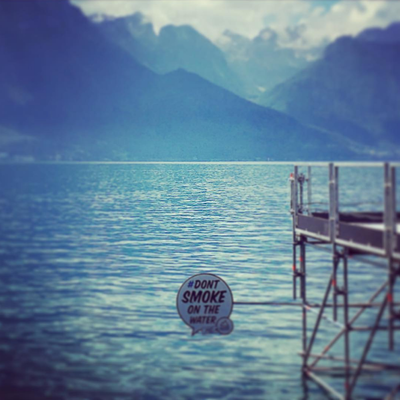
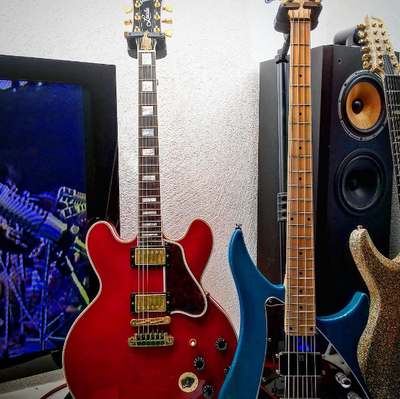
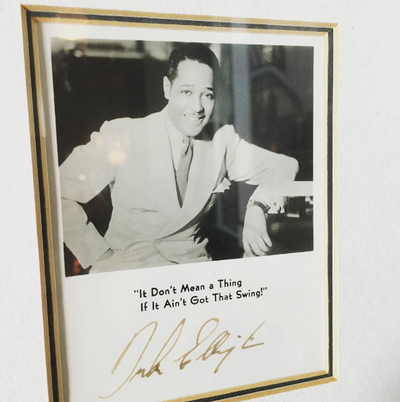
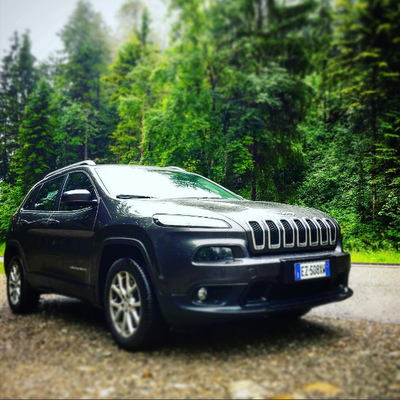

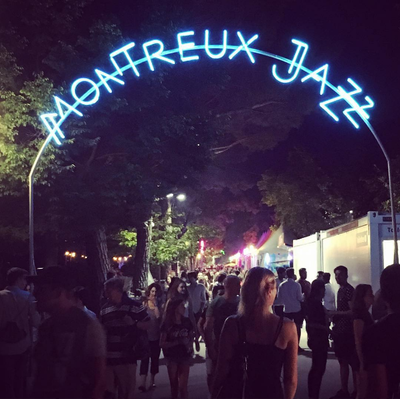
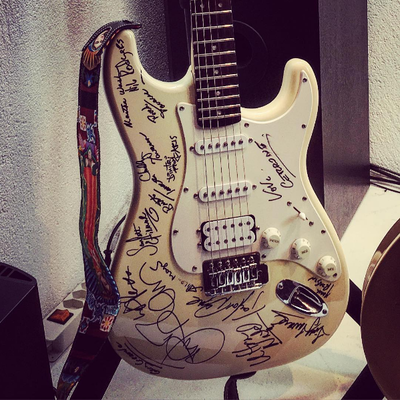
 RSS Feed
RSS Feed